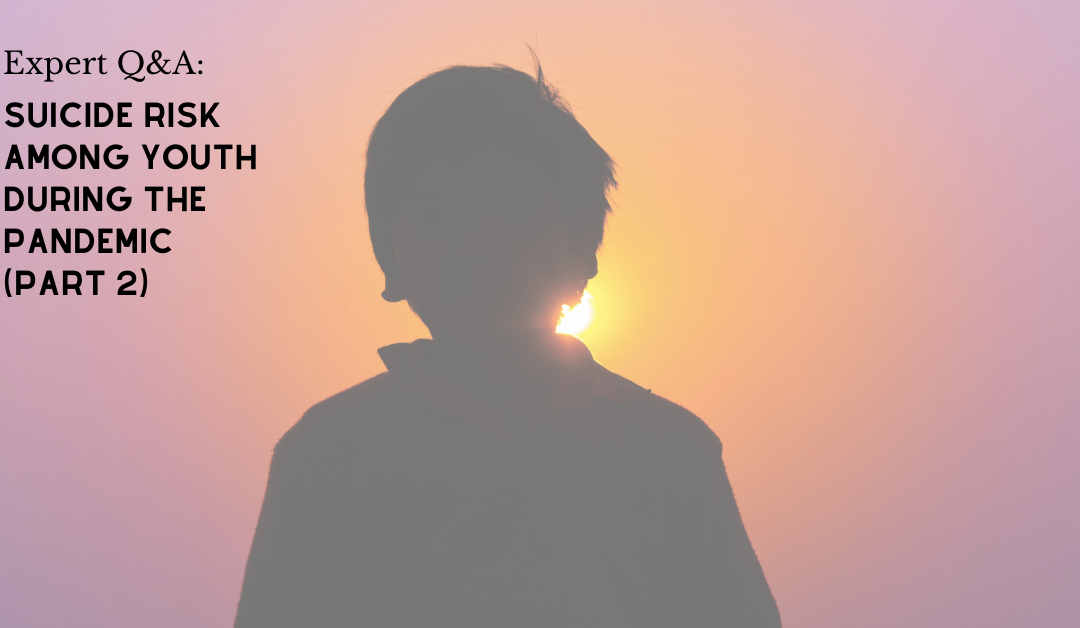In honor of Self-Injury Awareness Month, we’re back with Part 2 of our discussion with South Bay’s assistant director of Children’s Behavioral Health Initiative services, Sara F. We had so much to talk about with Sara that we’ve made her Q&A a two-part series. Read on as Sara breaks down how to approach the topic of suicide with youth, and don’t forget to check out Part 1, where Sara discussed suicide and the pandemic’s impact on our nation’s youth.
When it comes to suicide prevention, what can we do as a community?
I think prevention in a pandemic looks like increased support and awareness. It’s important people know there’s a rise in suicide attempts, completions and hospitalizations since 2019. People need to know that something is wrong. Even though our youth may be present and engaged, they may also be experiencing suicidal ideations. We have a responsibility to ask them if they’re feeling isolated, hopeless, helpless or if they don’t want to continue on in this life.
I think prevention starts on the ground level by increasing awareness in our communities. Awareness is the first step to prevention. There’s already a stigma surrounding mental health, but suicide is seen as especially shameful. It’s less talked about because of this. We must let our youth know that we’re going to talk about it – even though it’s challenging.
Suicide is a sensitive topic. How do South Bay clinicians broach it with clients?
I’ve found that it almost comes as a relief to our clients when somebody brings it up to them. Most of the time, because of that shame and stigma, they’ve been holding on to it. They haven’t felt like there is somebody they can discuss it with, and they haven’t felt comfortable bringing it up. When their clinician mentions it, it’s almost like this bottle has been uncorked, and they can express their feelings. This opens the door to let them know that they don’t have to feel ashamed of their emotions. For the most part, our clients respond favorably to opening that conversation.
Of course, we have clients who aren’t always receptive – they sometimes question why they’re being asked about it, if they’ve never given any inclination to die by suicide. In that moment, we’re able to discuss the importance of simply talking about the topic, as those conversations help remove the stigma around it.
Are there any other takeaways you’d like to share when it comes to suicide prevention?
Just know that everyone can do their part to raise awareness and increase prevention. Don’t be afraid to talk about suicide. Talking about it will help you be more cognizant of what’s going on in your home.
If you or someone you know is experiencing suicidal thoughts, our team of certified staff members and clinicians want to help. Through our mental health counseling services, we can assist those experiencing hardships find positive solutions. For more information, contact us at 508-427-5362 or click here.
Below we’ve included a few resources:

